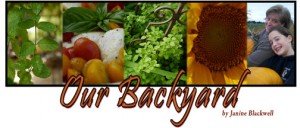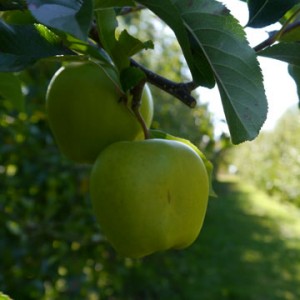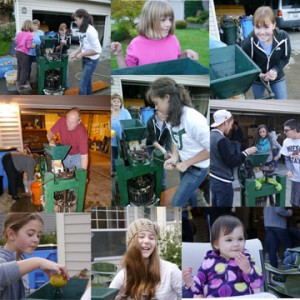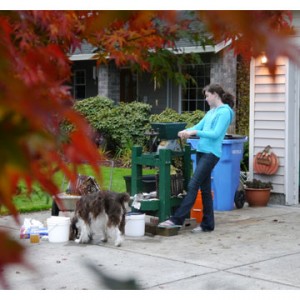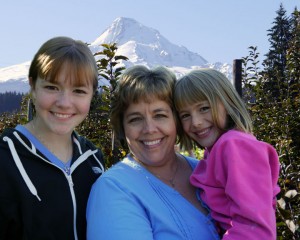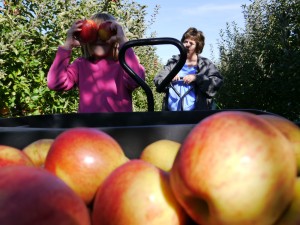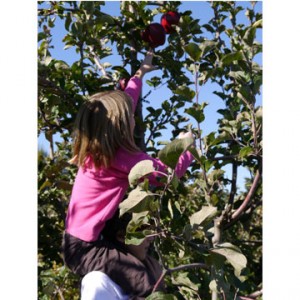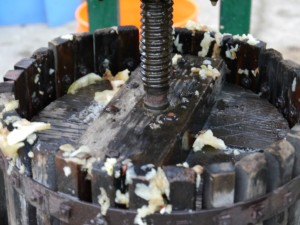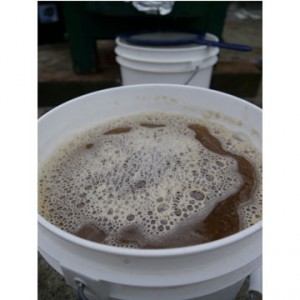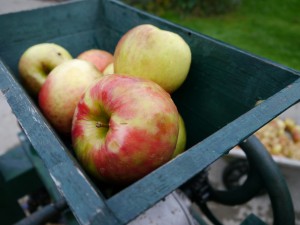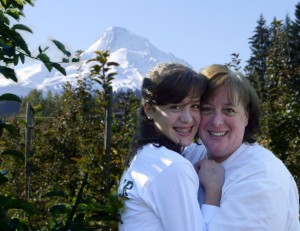Malus Domestica
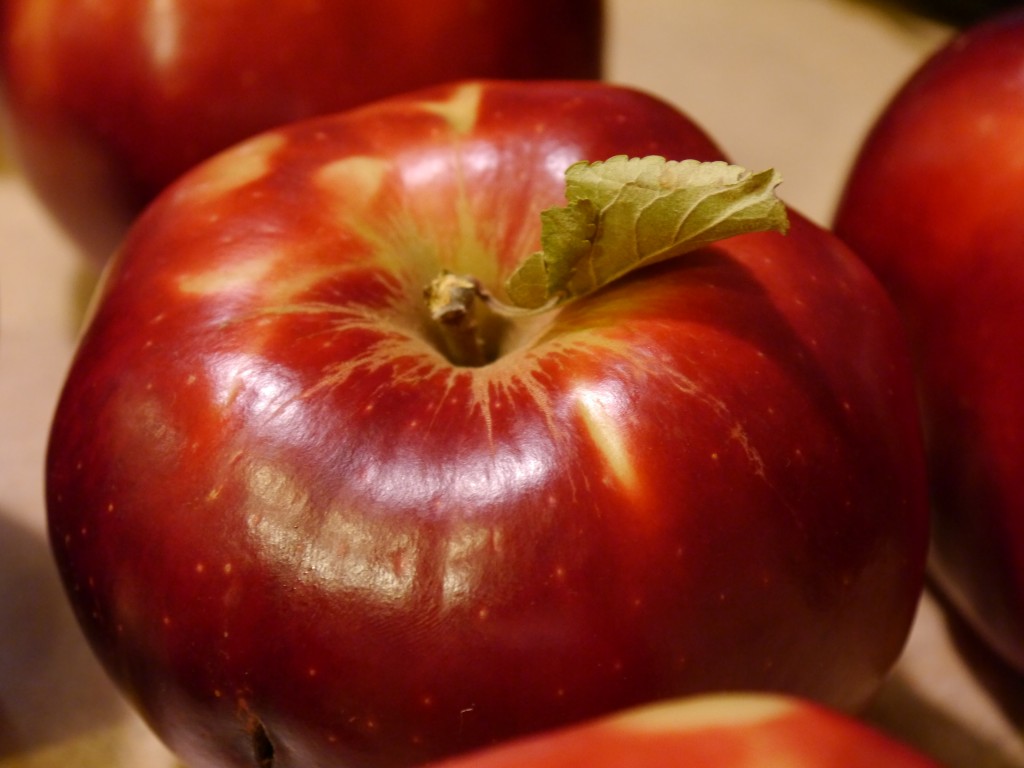
Immortality, fruitfulness, a love charm, a cure: Apples can easily be called the world’s most beloved fruit, now and throughout history.
Today there are well over 7,500 varieties grown all over the world with the leading producers being China, the United States and Turkey.
Apples grow best in colder climates, they need a dormant period of a few months each year to set their blossoms and Washington is the U.S’s leading producer. WOO HOO Washington!
I have to admit that — unlike the rest of the world — I am not in love with the fruit! However, when I start thinking about the things I need to do and make each canning season, I plan my autumn time around the apple harvest. I HAVE TO HAVE fresh-pressed cider (which I freeze), apple-pie filling and dried apples to get me through the winter and spring months. Weekends get set aside just for picking, pressing, canning and drying.
The past few years I have also hosted an apple-pressing party in my garage and driveway for friends and neighbors. It’s great fun. We officially start around 2 p.m., but friends come whenever they can to get their apples pressed and we go into the night to make sure we get it all done for everyone. We usually pull out the fire pit, bring out a few bottles of wine (one year we drank a gallon of rumtopf — great stuff!) and everyone brings food to share, hearty soups, hot potato dishes, dips and chips and fabulous desserts!
Pressing cider is easy; the hard part is locating a press to either rent or borrow — I’ve done both — and making sure it is clean (food safe) and in good working order. About 15 pounds of apples makes about a gallon of cider and a well-balanced cider should have a blend of apples for juice, sweetness, aroma and acidity. I have a publication on cider making called “Making the Best Apple Cider” by Annie Proulx, that covers all the instructions for the whole process including making hard cider, which I make every couple of years in five gallon batches.
This year we picked our apples up on Mount Hood at Kiyokawa Family Orchard.
It was a beautiful fall day and we were with our good friend Shaun and two of her daughters.
I wanted about 150 pounds of apples, but Sara and I ended up picking double that. It was so much fun and Kiyokawa apples are amazing!
Pressing takes awhile and you get very sticky — juice and pulp flies everywhere. I blend my apples as I rinse, in a 5 gallon bucket, counting to make sure I have the right mix. Usually we get the kids to grind and the guys to press. A huge Thank you! this year to my student, Rylan, for lending me his family’s press. It worked great!
I pour my fresh-pressed cider directly into gallon water jugs and they go right into the freezer. I leave a little room at the top for expansion. This year I also froze in quart jars; we’ll see how they hold up.
To make hard cider you pour the juice into a container — I have a 5 gallon glass carboy. This year I am letting it go natural, meaning I’m not adding any commercial yeast to it. I let it sit for about a week, open to the air before it starts “working.” After the foam coming out the top started to slow down, I capped it with an airlock. Now I wait. It can take anywhere from a few months to a year before it is done, I just have to be patient and wait and see. So far it looks and smells great.
Here is my 2013 apple blend for cider:
3 Golden or McIntosh (sweet/tart and juice, medium acid)
3 Gala (for sweetness, juice and aroma, low acid)
1 Jonathon (tart and spicy, high acid)
1 Gravenstein or Granny Smith (high acid and tannin)
We are not big applesauce eaters, but we love having apple pie filling and a chunky applesauce for oatmeal or over ice cream, pancakes or waffles.
Canned Apple Pie Filling:
Makes about 4 quarts
4lbs of Jonagold
7lbs of Granny Smith
¼ C Water
1 ½ C Sugar
¼ C Cinnamon
¼ tsp Fresh ground Nutmeg
½ tsp Salt
2 TBS Butter
Start the canner heating. Core, peel and chunk the Jonagold apples. Core, peel and slice the Granny Smith. Add to a large (8 quart) stock pot. Add all the ingredients and turn on high heat. Keep an eye on it and stir often. The Jonagold apples should cook down to make a sauce. The Granny Smith should stay in whole slices. Taste and amend. Flour or clear gel are not needed when making a pie because the Jonagold apples cook down to a nice, thick sauce.
Chunky Apple Sauce is the same as the pie filling except I cut the Granny Smith apples into smaller chunks. And this year I didn’t add any water, but used left over fresh cider as my liquid.
Dried apples are easy. I core them and then slice (with the skin) in my food processor, add a little cinnamon and sugar and dehydrate them at 125 degrees for about 24 hours. They hold up really well in the pantry in Ziploc storage bags.

